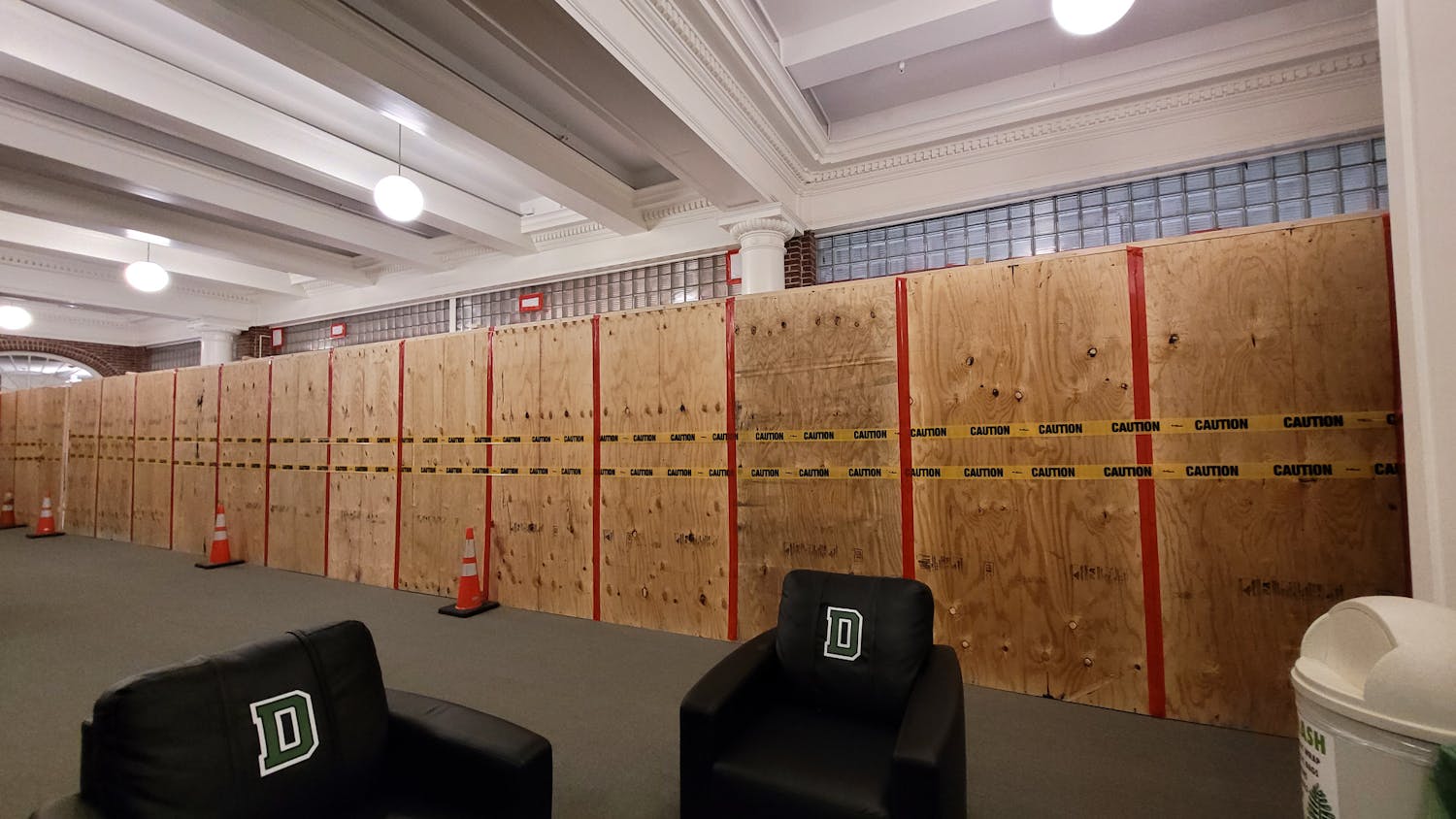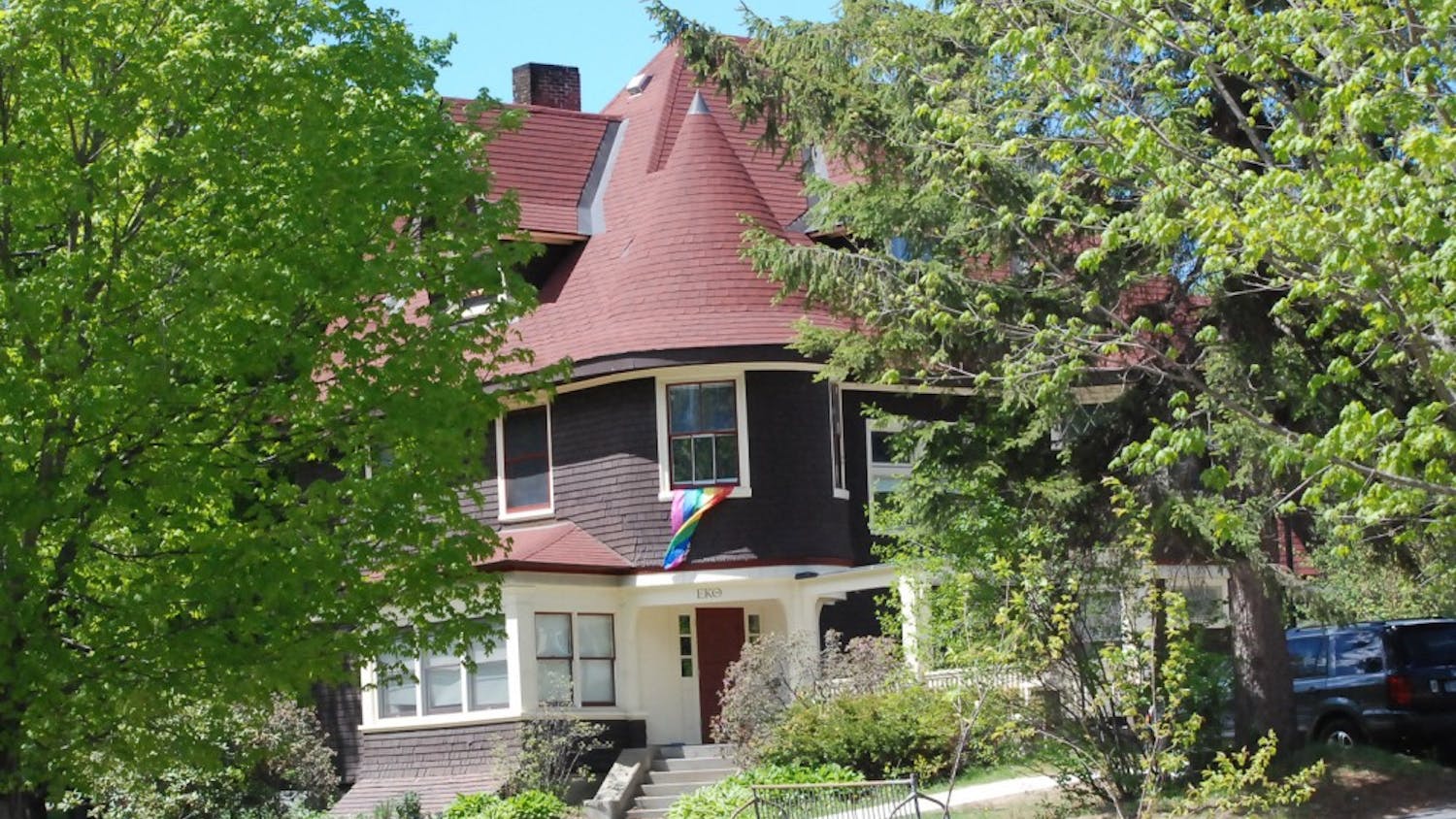A sustainable living center, which has been proposed and dropped several times over the last 20 years, will become a reality within the next year, according to Jon Wachter '09, a student involved with the project.
In a meeting today with various administrators, including Dean of Residential Life Marty Redman, Acting Sustainability Coordinator Mary Gorman and Associate Dean and Executive Officer Gordon Taylor, the College announced that the students would be able to use North Hall for their project.
"Within the next year North Hall will become a living space and a learning space for environmental activities on campus," Wachter said.
The project is being organized largely by Dan Susman '10, Hannah Dreissigacker '09, Sam Welch '10 and Wachter, who began investigating the possibility of creating a sustainable living center at Dartmouth last spring. Their goal is to provide a way for students to limit their environmental impact through communal living.
Students will take up residence in the building in the next year, which will be renovated in 2010 in order to become as energy efficient as possible. Dreissigacker listed several ways that students will limit their environmental impact in the years before the renovation, including using clotheslines and drying racks to dry clothes, cooking communal meals using local, organic food and installing insulating curtains on their windows.
The promise of a sustainable living center is a victory for the sustainability movement at Dartmouth, which has seen some setbacks this term with its sustainable dining projects.
Composting at Homeplate, which some thought had disappeared, has merely moved inside the dish cleanup area, according to Ruth Hupart '08, the co-chair of Sustainable Dartmouth. All food scraps from Homeplate continue to be composted in Dartmouth's composting facility near Dartmouth-Hitchcock Medical Center. The process of separating compostable from non-compostable waste has been taken out of students' hands because of errors in the sorting process.
"It just didn't work when the students were doing it themselves," Hupart said. "It's hard to say if it was intentional or unintentional, but they were throwing items into the wrong bins, despite lots of signs and explicit instructions."
Beth Rosenberger, the manager of Homeplate, noted that incorrectly sorted compost led to the production of more waste.
"We ended up throwing a lot of stuff into dumpsters and sending it to the landfills because it was so contaminated," Rosenberger said.
With the new system, food is sorted more efficiently, but at a cost: Homplate has had to hire additional employees for the dish room to separate compostable from non-compostable waste.
Students interested in sustainable dining may also have noticed a dearth of reusable to-go containers this term. Last year, the washable containers were available in both Thayer and the Collis Cafe, but this year they can only be found in Collis. According to Rosenberg, at least 60 percent of containers have gone missing since the College started the trial program during the summer of 2006.
"Enough of them disappeared that the College did not see enough financial incentive to keep putting them out there," Hupart said.
Despite these changes, the sustainability movement at Dartmouth is still going strong, Hupart said.
While acknowledging the importance of sustainable dining initiatives, Hupart noted that Sustainable Dartmouth is focused on other projects as well, including real-time energy feedback and the sustainable living center.
Computer Science professor Lorie Loeb and Gemma Ross '08 are working on a project that would give students real-time feedback on energy use in dorms. The project, which is being conducted as Ross' senior thesis for the computer science department, will collect data from sensors on heating, water and electricity. This information will be displayed in dorms so residents can know about their energy consumption and hopefully change their behavior to limit it.
"The idea is to combine the real time meter along with education and information ... in order to show people the information they need so they can reduce energy use in pretty simple ways that have a big impact," Loeb said.
One of the challenges of the project, she said, is the desire to show both aggregate data for an entire building or floor and the impact of individuals' actions. Loeb likened the project to cars that display real-time data on their engines' efficiency.
"If you really pay attention, you do a lot better," she said. "It tells you 'Wow, this is really effective,' and where things aren't as effective."
While the details are still in the works, a test of the program on one floor of the McLaughlin Cluster should be underway during the Winter term, Loeb said. She hopes the program will be able to expand to an entire building or the whole cluster by the spring.



